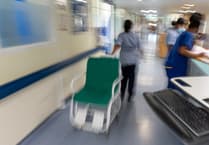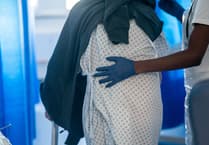The NHS in Devon urges vaccinations, handwashing, and self-care to prevent winter illnesses and protect health.
Winter illnesses, including flu, COVID-19 and respiratory syncytial virus (RSV), are circulating widely, with emergency department attendances on the rise.
They strongly encourage everyone eligible, especially the elderly, pregnant women, and those with pre-existing health conditions, to come forward for their vaccinations for these infections.
Vaccination will help reduce your risk of getting seriously ill.
School-aged children in reception through to year 11 are also eligible for a free flu vaccine, delivered as a nasal spray in schools or as an injection for those with medical or faith exemptions.
If your child missed getting a vaccine at school, they can get it at a catch-up clinic.
Two and three-year-olds (on or before August 31 2024), as well as children aged six months to two years with certain health conditions, can also receive the flu vaccine through their GP.
Norovirus, which causes vomiting and diarrhoea, is circulating at higher levels than average so far this year as we all start spending more time indoors together with friends and family.
Regularly washing your hands with soap and warm water for 20 seconds and using bleach-based products to clean surfaces are effective ways to stop the spread of norovirus and other infections. Avoid preparing food for others if you have diarrhoea and or vomiting.
If you do have respiratory symptoms such as a cough or sore throat, along with a fever, consider giving social gatherings a miss as it’s best to avoid close contact with other people, especially those who are vulnerable, such as the elderly or those with weakened immune systems. If you do go out in crowded places, consider wearing a facemask to reduce your risk of infecting others.
If you’ve had diarrhoea and vomiting, avoid school or work for 48 hours after symptoms stop and do not visit loved ones in care homes or hospitals to reduce the chances of causing outbreaks in these settings.
Antibiotics do not work against viruses, which are the usual cause of these conditions.
Taking antibiotics when you don’t need them can contribute to antibiotic resistance, making it harder to treat bacterial infections in the future.
Dr Peter Collins, Chief Medical Officer for NHS Devon, said: “No one wants their plans derailed by a bout of norovirus or flu.
Take simple steps to reduce your risk of infections and their consequences this winter – including taking up all the vaccines you may be eligible for.
You can also help reduce the risk of passing infections on to others through frequent handwashing and catching coughs and sneezes in a tissue.
If you have diarrhoea and vomiting, do try and avoid passing it on by staying away from work or school for 48 hours after symptoms have stopped and avoid visiting vulnerable loved ones.
Dr Collins added: “It’s vital that those who need medical help come forward as they usually would – using 999 and A&E in life threatening emergencies and 111 online for everything else, alongside their GP practices and pharmacies.”



.jpeg?width=209&height=140&crop=209:145,smart&quality=75)

Comments
This article has no comments yet. Be the first to leave a comment.